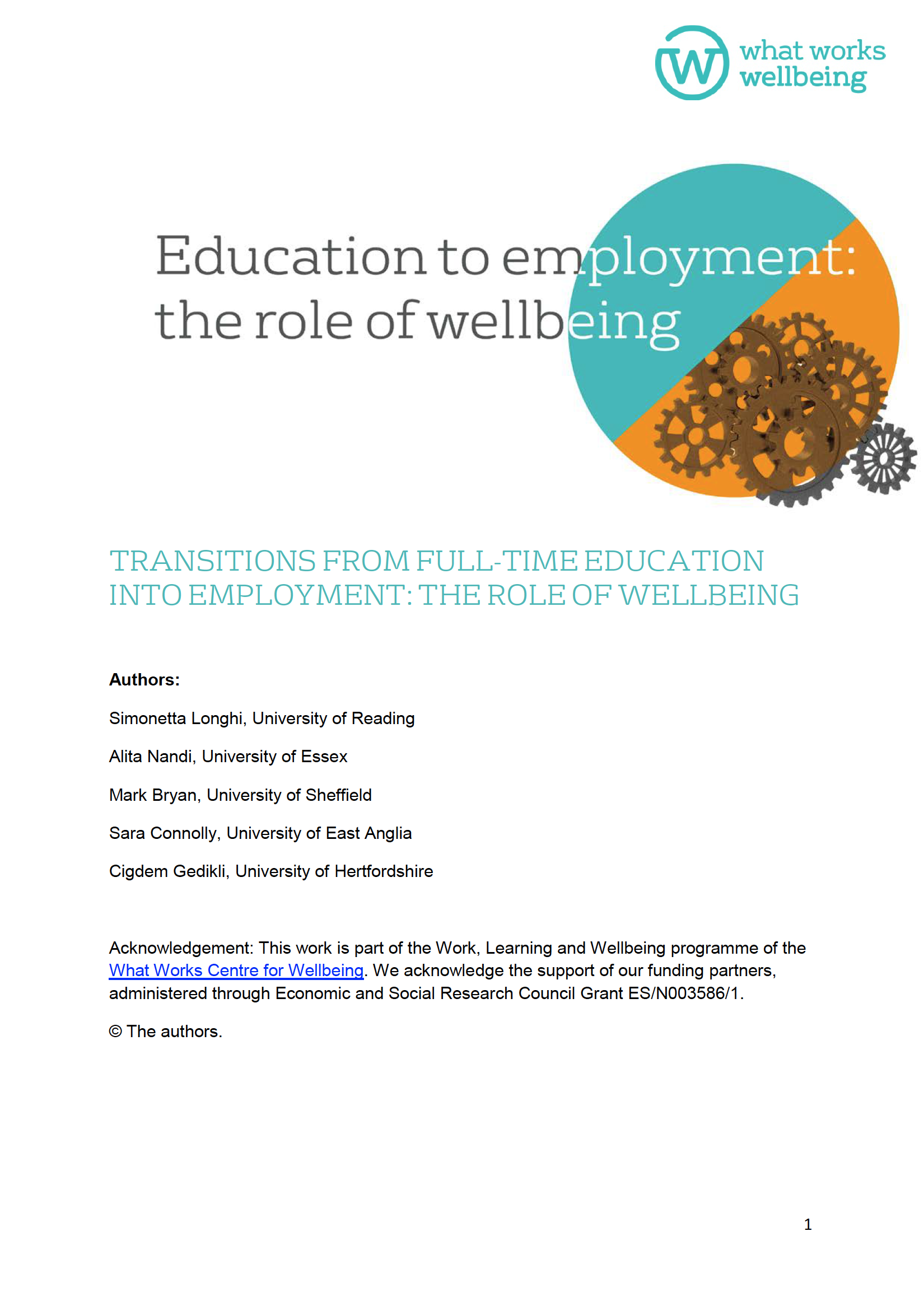Education To Employment: The Role Of Wellbeing
Downloads

Intro
Using five years of longitudinal data from the UK Understanding Society Survey, this study finds that young people with lower levels of life satisfaction are less likely to go on to find a job. The strength of the effect is determined by personality, such that the negative impact of low life satisfaction is only significant for introverts (those scoring below average on an extraversion scale), and not extraverts (those scoring above average).
What are the key findings?
There is a significant association between life satisfaction and the probability of finding a job after leaving full-time education: students with higher life satisfaction are more likely to be employed when they leave. We find that life satisfaction affects employment prospects in addition to any effects of students’ gender, ethnic group, their qualification when leaving, or their region of residence. If life satisfaction is one point higher (on a 1-7 scale) then the probability of getting a job is 1.9 percentage points higher. This compares with an overall probability of transitioning into employment of 65%.
We also found (see Figure 1 for full results):
• Level of qualification made a big difference to employability, with the biggest difference being between on the one hand those who had A-levels, degree or other higher education, and on the other hand those who only had GCSEs or lower qualifications.
• Young Pakistanis were significantly less likely to find employment than White British
• Young women were significantly more likely to find employment than young men
• Those whose parents had lower skilled occupations (when the students were aged 14) were less likely to find a job.
Why should you care?
The transition from full-time education into employment can be a testing time for many young people. Helping young people find employment has been a key policy objective for many years, and indeed the percentage of young people not in education, employment or training (NEETs) is now part of the United Nations SDG framework.
Using five years of longitudinal data from the UK Understanding Society Survey, this study finds that young people with lower levels of life satisfaction are less likely to go on to find a job. The strength of the effect is determined by personality, such that the negative impact of low life satisfaction is only significant for introverts (those scoring below average on an extraversion scale), and not extraverts (those scoring above average).
The effect is small: a 1-point increase in life satisfaction (on a 7-point scale) is associated with a 2.8 percentage point increase in likelihood of transitioning into a job, for introverts. In comparison the likelihood of transitioning to a job for those whose parents had low skill jobs was 6.5 percentage points lower than those whose parents had medium skill jobs, whilst those who only had completed GCSEs were 17 percentage points less likely to find a job than those who had completed A-levels. Nevertheless, while most demographic factors are fixed, life satisfaction is something that can be improved within the education system.1 As such, actors looking to improve the employability of young people – particularly introverts, should consider interventions that improve their life satisfaction.
What can you do next?
You might be interested in this read
Downloads
![]()
[gravityform id=1 title=true description=true ajax=true tabindex=49]



